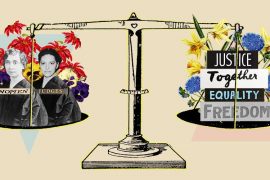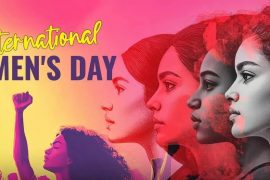Traders in Africa, especially women, youths and SMEs face significant challenges when attempting to benefit from multilateral and regional trade agreements as many trade agreements do not include their specific needs and concerns.
This was said recently during a two-day East African Community (EAC) workshop aimed at enhancing the participation of women in the African Continental Free Trade Area (AfCFTA).
Speaking during the opening session of the workshop, the EAC Deputy Secretary-General in charge of the Productive and Social Sectors, Christophe Bazivamo said this challenge must be addressed.
Mr Bazivamo, who represented the EAC Secretary-General, said that the goal of the EAC was to ensure that women in the region were fully equipped and capable of accessing and exploiting the numerous opportunities and benefits that accrue from the AfCFTA initiative, adding that the continental free trade area provides significant business opportunities for the region.
“In EAC, the AfCFTA will allow our people to access a large continental market and increase EAC export to African countries outside the region. It will also improve the movement of people across Africa, advance trade and development aspirations and ultimately put the region in a better position to trade more with the rest of the world,” said Bazivamo.
The Deputy Secretary-General disclosed that the EAC had initiated a number of steps towards the implementation of the AfCFTA Agreement.
“We have now almost finalised the submission of our tariff offers, which conform to the agreed modalities in addition to the schedules of liberalisation of trade in services. We have also prepared a draft strategy for implementation of the Agreement, which takes into account the need for capacity building. It is presently under consideration by the Partner States,” said Hon Bazivamo.
“Further, we are also fully involved in negotiations on the outstanding areas such as Rules of Origin, Trade in services as well as the phase II issues on investment, competition, intellectual property rights and e-commerce,” he added.
On his part, the EAC Director General for Customs and Trade, Mr Kenneth Bagamuhunda, said that women own approximately 40 per cent of businesses in the EAC region.
Mr Bagamuhunda, however, noted that women traders face various challenges, including limited market knowledge, low access to capital and credit, limited access to information, limiting cultural practices, attitudes and beliefs and low levels of education.
Mr Bagamuhunda said that the expectations of the EAC were that AfCFTA would result in, among other things, lowering of business costs, promote local content and provide a platform for the settlement of disputes.
The DG said that EAC would leverage on its existing trade environment to promote women’s participation in the AfCFTA, namely: regional customs and trade instruments; interconnectivity of systems including customs and other border clearance agencies; One-Stop Border Posts; national Trade Information Portals; simplified trade regimes; trade exhibitions and symposia, and; expansion of the EAC, especially the anticipated admission of DRC into the Community.
DG Bagamuhunda said that the EAC was currently operationalising a framework for affirmative trade development through the digitalisation of markets, information dissemination, showcasing the region’s products and market opportunities, and the transitioning of the dominance of women in the informal sector to the formal sector.
Speaking at the workshop, Ms Godje Bialluch, the EAC-GIZ Cluster Coordinator, said that the German Development Cooperation (GIZ) supports the African Union, Regional Economic Communities such as the EAC as well as individual member states in AfCFTA processes.
“This includes stakeholder engagements to ensure that the private sector and especially women are participating in and contribute to the AfCFTA processes,” said Ms Bialluch.
Ms Bialluch hailed the EAC Secretariat for taking positive steps in the promotion of gender equality and empowerment of women in the region, for instance, by adopting the EAC Gender Policy in 2018.





Comments are closed.